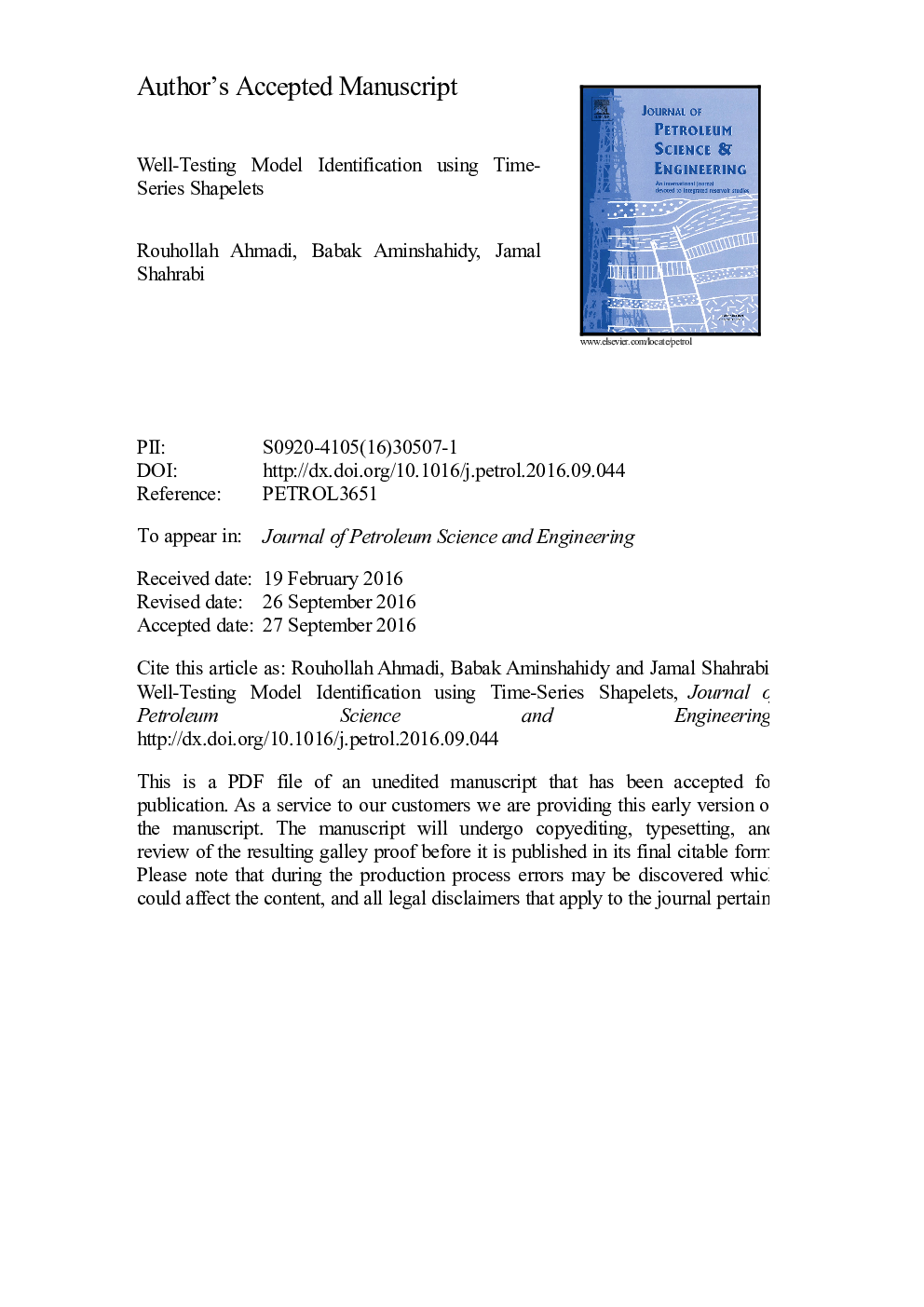| Article ID | Journal | Published Year | Pages | File Type |
|---|---|---|---|---|
| 5484472 | Journal of Petroleum Science and Engineering | 2017 | 45 Pages |
Abstract
Five different well-testing models (or classes) are investigated in this article. Shapelets are initially extracted for each pair of classes using the Fast-Shapelet algorithm and the minimum distances from the time series objects to the extracted shapelets are calculated to form a new feature space. Classification is applied on the new feature space using four different binary classifiers including random forest (RF), support vector machine (SVM), logistic regression (LR) and probabilistic neural network (PNN). The results verify that the RF technique yields the highest F-score value in predicting the true class labels among all the binary classifiers. To further improve the classification performance, an ensemble learner is finally created using the individual classifiers. The proposed approach is validated by testing against several real field test data. The results indicate that the shapelet-based approach is promising for the well-testing diagnosis applications.
Keywords
Related Topics
Physical Sciences and Engineering
Earth and Planetary Sciences
Economic Geology
Authors
Rouhollah Ahmadi, Babak Aminshahidy, Jamal Shahrabi,
